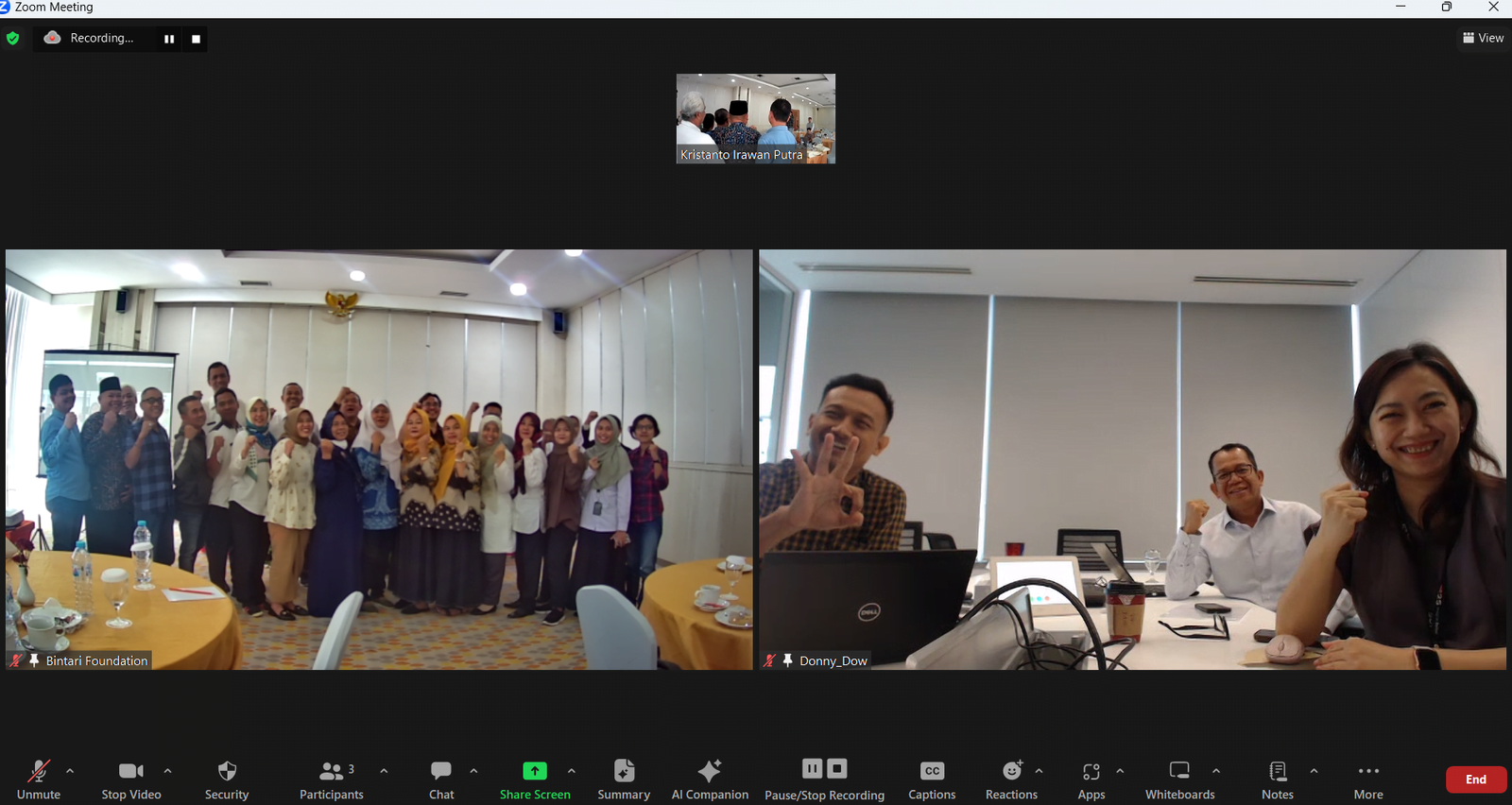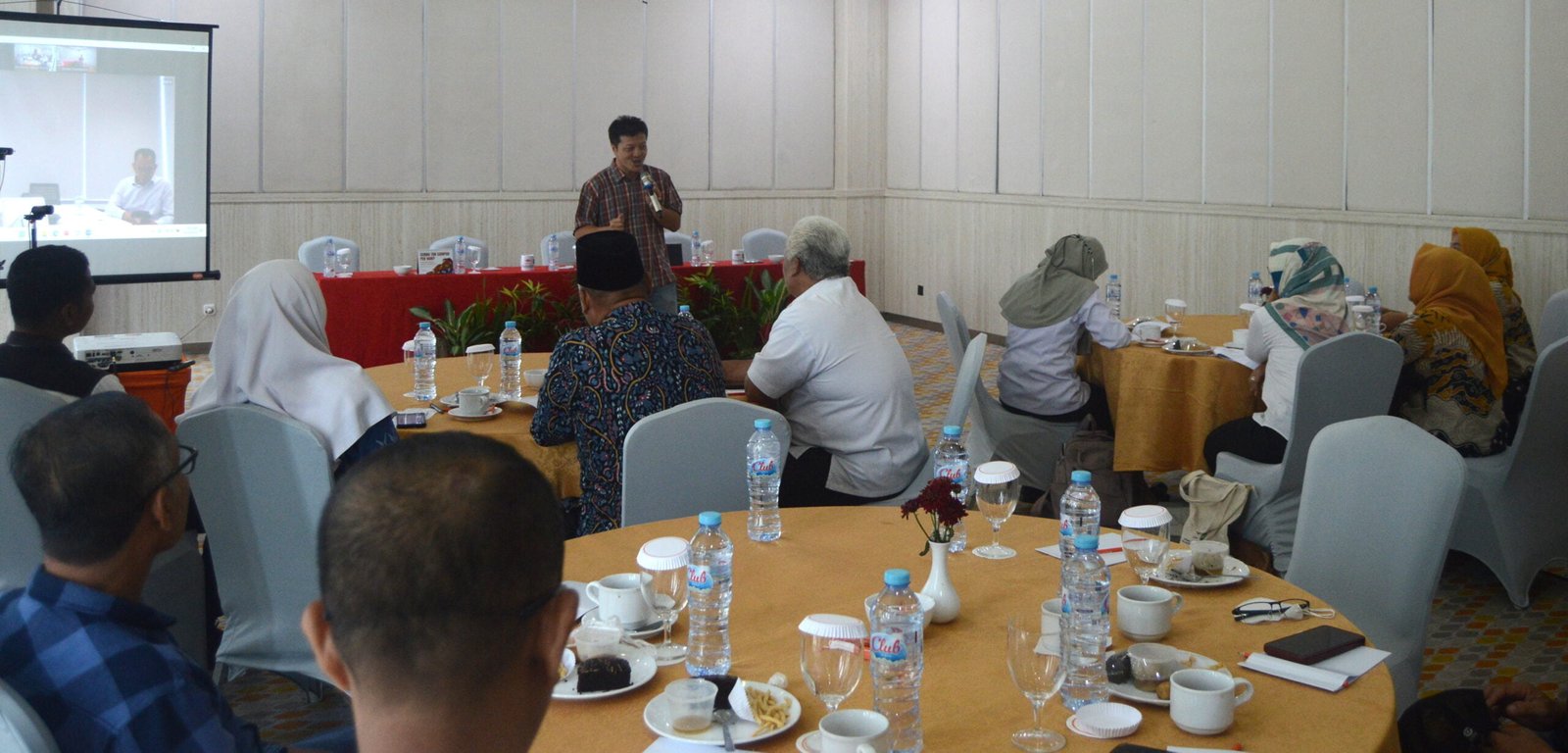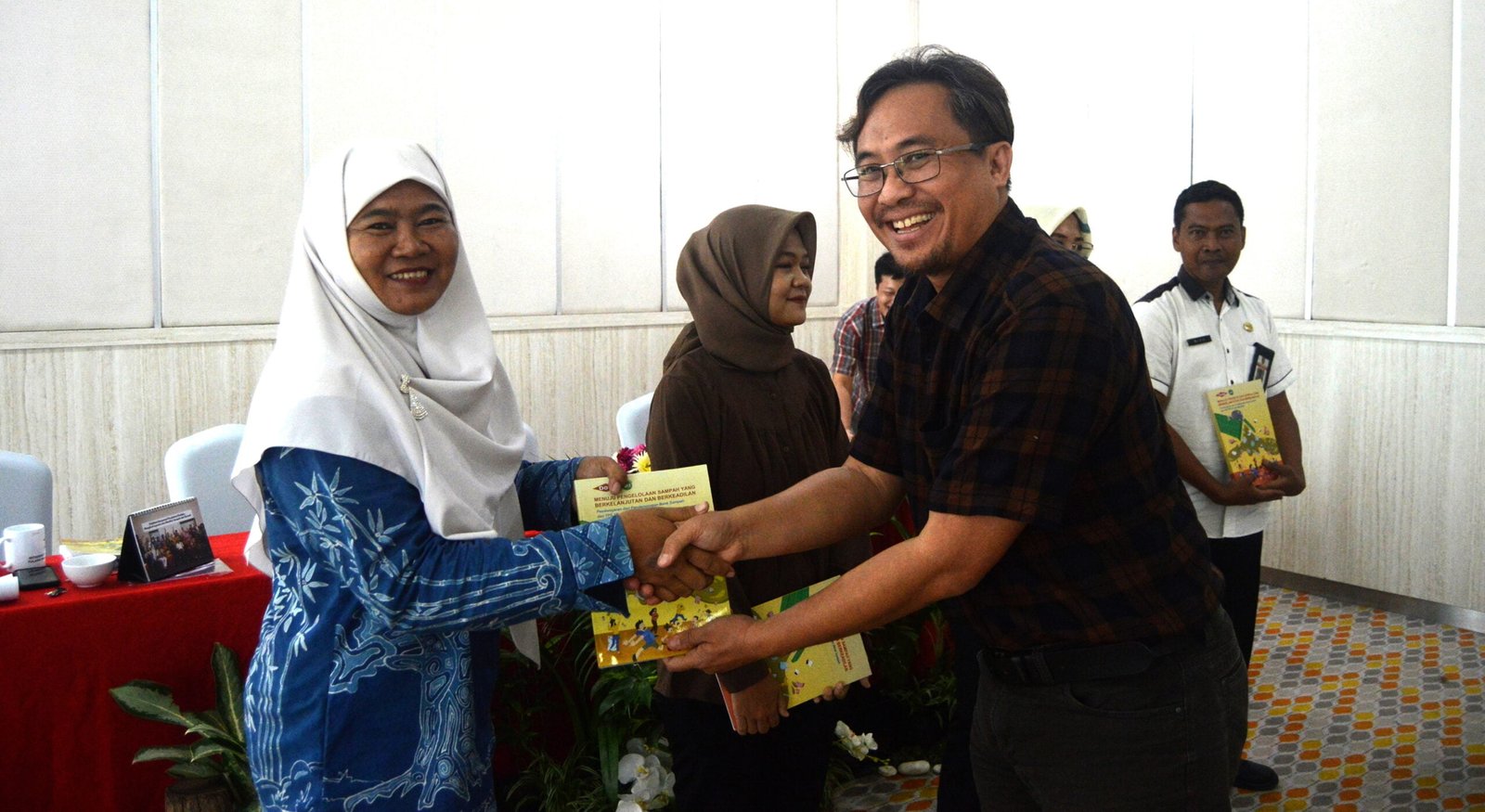Semarang – BINTARI Foundation in collaboration with PT DOW Indonesia is implementing a waste management improvement program through the integration of governance and waste processing of Waste Bank (Bank Sampah) and TPS 3R in Semarang City. “Waste management is a complex matter, it is not merely an issue faced in Indonesia, but also in the world. Therefore, DOW hopes to contribute to sustainable waste management practices through collaboration with BINTARI," explained Riswan Sipayung, President Director of DOW Indonesia in his online remarks, on Wednesday (15/11).

Integration of Waste Banks and TPS 3R at the sub-district/urban village level is considered an important foundation for optimizing waste segregation from the upstream level and collection of recycled raw materials to contribute to the circular economy. The program, which was carried out from April 2022 to September 2023, targets six urban villages in Semarang City, focusing on two Waste Banks and four TPS 3R.
At this closing event, the results of program implementation were presented by BINTARI Value Chain Analyst Kristanto I. Putra. He elaborates that from the initial 2,521 families who took part in waste management services, the program succeeded in increasing community participation to 3,088 families. This has an impact on increasing the collection of recycled raw materials. The collection of recycled materials at the six urban villages, which was originally 1.28 Ton/month, has now increased significantly to 2.76 Ton/month. “Waste Management Institutions (Lembaga Pengelolaan Sampah) need to integrate the service chain and value chain. Indeed, institutional integration is the key to community-based waste management," Kris emphasized.

The head of the Regional Development Planning and Infrastructure Division of Development Planning Agency (BAPPEDA) Semarang City Arwita Mawarti and the Head of the Waste Management Division of Environmental Agency Semarang City Adi Jatmiko were present at this closing event as Panelists to represent the Semarang City Government. "To increase the capacity of waste management, the infrastructure aspect needs to be improved. Semarang Mayor Regulation no. 3 of 2023 concerning Guidelines for Implementing Community Meetings and Village and District Development Planning Deliberations in the context of Preparing Regional Government Work Plans for 2024 (Semarang Mayor Regulation no.3 of 2023 concerning Guidelines for Implementing Community Meetings and Urban Village and Sub-District Development Planning Deliberations in the Context of Preparing Regional Government Work Plans for 2024) can be a legal policy for community to make request proposals for collection facilities to support waste management in urban villages", said Arwita. Meanwhile, Adi Jatmiko from the Environmental Agency added that Waste Management administrators can also apply for waste-supporting equipment and processing facilities through Musrenbang, which the Environmental Agency can then follow up when preparing the Regional Government Work Plan (Rencana Kerja Pemerintah Daerah).
This closing activity marked the end of the collaboration between the BINTARI Foundation and PT DOW Indonesia on the integration of Waste Bank and TPS 3R Program in Semarang City. This opportunity not only presents the results of the program, but also disseminates lesson learned from failure experiences, and analyze the keys to success in realizing integrated waste management at the upstream level. It is expected that this activity can be an opportunity to provide feedback on policy recommendations to the Semarang City Government so that they can be followed up into regulations that further support the sustainability of city-level waste management.

At the end of the event, the BINTARI Foundation distributed a book "Towards Sustainable and Inclusive Waste Management: Lessons from Assistance of TPS 3R and Waste Banks (Menuju Pengelolaan Sampah yang Berkelanjutan dan Berkeadilan: Pembelajaran dari Pendampingan Bank Sampah dan TPS 3R)”. The symbolic submission of the book was given to Development Planning Agency and Environmental Agency as representatives of the Semarang City Government, to PT. Victoria Care Indonesia as the private sector representative, and to TPS 3R Mangkang Kulon as the representative of the community-based TPS 3R. This book, which consists of lessons learned was prepared based on BINTARI's experiences, which is dedicated to the development of waste management in Indonesia.


3 thoughts on “Seminar Penutupan Proyek DOW Indonesia x BINTARI: Integrasi Bank Sampah dan TPS 3R sebagai Tulang Punggung Daur Ulang Sampah Kota”
Just downloaded the luckywin777app. The interface is smooth, and they have a good variety of games. Hopefully, the name is true. Wish me luck! You can try it yourself here luckywin777app
02gamedownload? Got a couple games from there. Fast downloads and haven’t had any issues so far. They have a decent selection. Check it out for yourself 02gamedownload
Signed up for 50betlogin. The login process was straightforward, and the website is easy to navigate. Time to put my bets in. You should check them out here 50betlogin